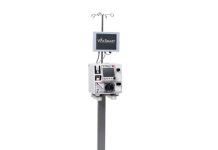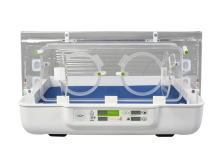Two digital health startups have teamed up to make it easier for Medicaid patients to get access to much-needed behavioral health services from their homes.
Home-based healthcare technology company MedArrive is teaming up with Brave Health, a virtual-first behavioral health provider, to refer its customers who need behavioral health services to Brave.
Brave Health started in 2019 with a focus on serving Medicaid and Medicare populations. The company offers outpatient services such as therapy, psychiatry, case management and medication-assisted treatment for mental health and addiction. The company partners with more than 200 health plan contracts to cover more than 65 million members across 18 states.
“Brave Health and MedArrive make ideal partners. By working together, our goal is to reduce the time it takes for members to receive the services they need, to provide more comprehensive care and to improve outcomes and reduce costs,” Anna Lindow, CEO and co-founder of Brave Health, said in an interview. “For some individuals, it can be challenging and time consuming to navigate receiving the care needed across multiple organizations. By working together, we aim to reduce these barriers.”
Former Lyft and Uber executive Dan Trigub launched MedArrive in 2020 with a unique approach to home health. The company offers a care management platform that enables healthcare providers and payers to extend services into the home.
MedArrive aims to bridge the virtual care gap by integrating physician-led telemedicine with hands-on care from a network of trusted EMS professionals, improving patient outcomes while empowering an underutilized segment of healthcare workers.
Through the partnership, if MedArrive identifies an eligible health plan member in need of mental health support, MedArrive’s field providers can immediately refer that member to Brave Health’s behavioral health providers in real time and schedule care within 72 hours.
RELATED: Bio-Rad Laboratories to acquire Curiosity Diagnostics for $170m
Vulnerable and at-risk populations struggle to get access to basic behavioral health services. Approximately 1 in 4 Americans now receive healthcare benefits through Medicaid, but the percentage of psychiatrists accepting Medicaid has been cut in half in the past decade, leaving millions without the care they need, according to Trigub and Lindow.
“During the home visits conducted on behalf of our health plan partners, our field providers were already recognizing so much mental health care need and were working with our case management team to align support in coordination with the health plan’s case management team. But, having an established relationship with Brave Health means that we can more easily connect these members with the resources they need more quickly,” Trigub said in an interview.
He added, “MedArrive has been very successful helping Medicaid members get basic care services from their homes, while also acting as an important way to address other social needs, so it only made sense that we find a solution for behavioral health. As the leader for Medicaid, Brave Health was the right partner.”
Conversely, if Brave Health identifies an eligible health plan member that may benefit from MedArrive’s home health services, Brave Health will work with that health plan’s case management team to align support.
Health insurers, and especially managed Medicaid health plans, often face significant challenges with their most vulnerable members. Many either don’t have regular providers or face major hurdles trying to see one, resulting in very poor health and frequent, costly trips to the emergency room.
MedArrive has more than 50,000 highly-skilled EMS providers, including skilled paramedics and EMTs, in its national network. Services span dozens of clinical use cases including chronic condition management, transitional care, readmission prevention, urgent care, vaccinations and palliative care, and more.
When higher-acuity care is needed, members connect with physician-led telemedicine services. Field providers and case management teams also identify care gaps and help members address social needs, including transportation, nutrition, behavioral health needs and mobility challenges, according to Trigub.
Now, with an established integration, the two companies can help health plans better coordinate more comprehensive care while potentially reducing the cost of higher-acuity care.
“Given that mental health—like other basic healthcare services—can cause these vulnerable populations to seek emergency care, we know that our health plan partners will feel more confident that we’ve got all of the bases covered. Together, Brave Health and MedArrive can close as many care gaps as possible,” Trigub said.
Both companies have experience working with Medicaid and Medicare patients and are growing quickly as the industry recognizes the need for more innovation to serve these populations.
MedArrive has established nearly a dozen partnerships with large national and regional health plans including SCAN Health Plan, Clover Health, Bright HealthCare and Molina Healthcare as well as accountable care organizations and government entities such as the Los Angeles Department of Health.






